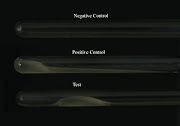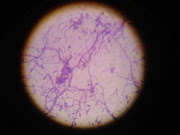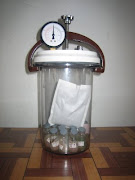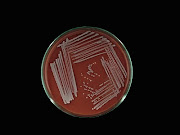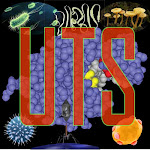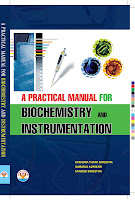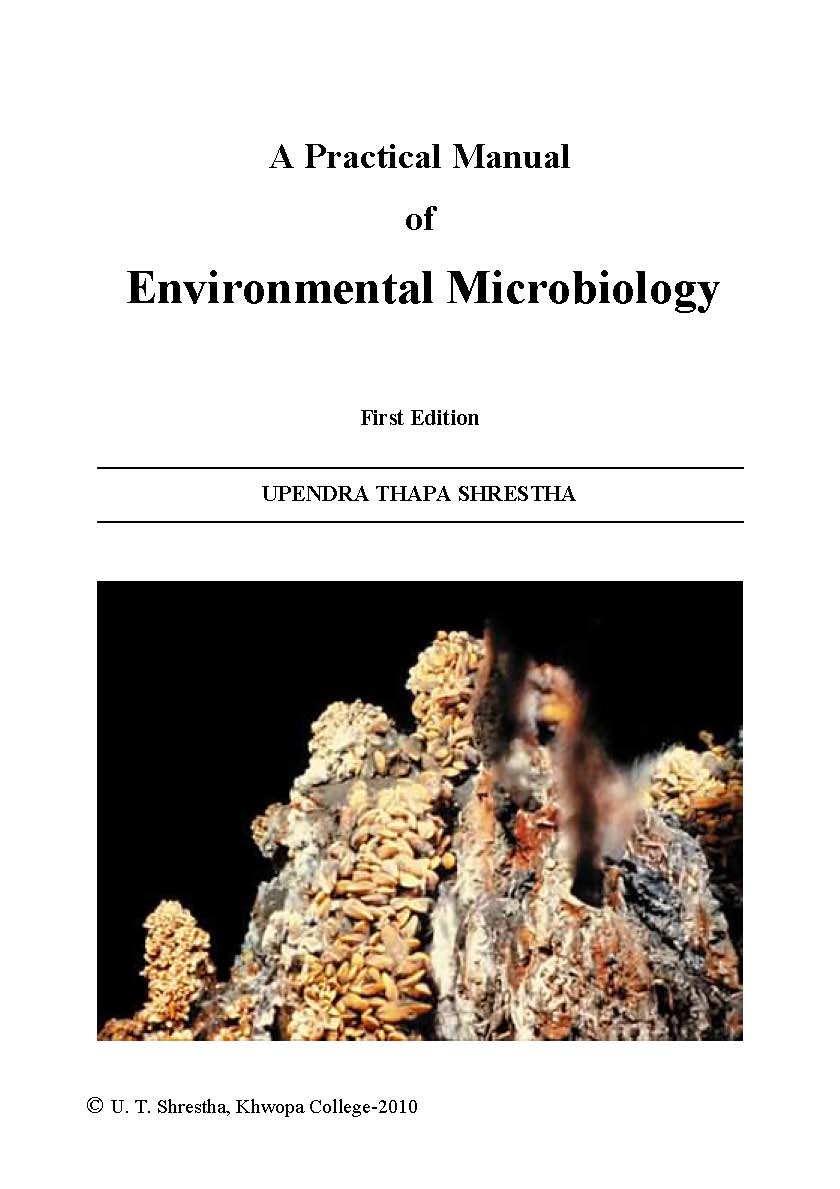New Revised Syllabus of MSc Microbiology for Academic year 2073-074
Semester I
|
Course code
|
Course Title
|
Nature of Course
|
Credits
|
Evaluation (40%
internal assessment)
|
|
Compulsory courses
|
||||
|
MB 501
|
Advances in Microbiology
|
T
|
3
|
75 (45+30)
|
|
MB 502
|
Immunology
|
T
|
3
|
75 (45+30)
|
|
MB 503
|
Microbial Genetics
and Molecular Biology
|
T
|
3
|
75 (45+30)
|
|
MB 504
|
Biochemistry and Biotechnology
|
T
|
3
|
75 (45+30)
|
|
MB 505
|
Practical on
(MB 501 + MB 502)
|
P
|
2
|
50
|
|
MB 506
|
Practical on
(MB 503 + MB 504)
|
P
|
2
|
50
|
|
|
Total
|
|
16
|
400
|
MB 501 Advances in Microbiology
Course Title:
Advances in Microbiology Full
Marks: 75
Course No.:
MB 501 Pass Marks: 37.5
Nature of
Course: Theory (3 credits) Semester:
I
Objectives
Upon the completion of the course students will
have knowledge on
a. Bacterial and viral taxonomy
b. Structure and physiology of bacteria, virus and fungi
c. Transport system and pathways of protein secretion
d. Growth and recovery of bacteria
and
Course
Contents
Bergey's Classification
of Bacteria 7
hrs
Nomenclature, Classification, Identification, Polyphasic taxonomy, Techniques used for determining Microbial Taxonomy and Phylogeny; Classical Characteristics method, Molecular Characteristics method, Phylogenetic tree, Cladograms, Dichotomous Keys, Basis for classification of bacteria, Introduction
to Bergey’s Manual
Pathways of Protein Secretion 5 hrs
General secretory pathway (GSP), Type I, Type II, Type III, Type IV secretion
system, Bacterial invasion mediated by cytoskeletal function, Disruption
of tight junction
Bacterial
Structure and Transport Mechanism 5 hrs Overview
of prokaryotic cell structure and function,
Cell membrane and function,
Cell wall and function,
Passive diffusion, Facilitated diffusion, Active transport, Group translocation, Iron transport,
ABC
transporter
Bacterial Growth, Growth Kinetics 4
hrs
Lag
phase,
Exponential or log phase,
Stationary phase, Death
phase, Generation
time determination, Diauxic growth
Bacterial Metabolism 10
hrs
Nutrient,
Macro and Micro elements,
Requirement of carbon,
hydrogen and oxygen, Nutritional types of microorganisms, Free energy and reactions, Oxidation-Reduction reaction and electron carrier, Role of ATP in metabolism, Mechanism of generating ATP, Photophosphorylation, Substrate-level phosphorylation, Oxidative phosphorylation, Chemiosmotic theory, Overview of metabolism, Catabolism, Anabolism, Breakdown of glucose
to pyruvate, Embden-Meyerhof pathway,
Pentose phosphate pathway, Entner-Doudoroff pathway,
Kreb cycle, Fermentation, Lactic acid fermentation, Ethanol fermentation, Mixed acid fermentation, Butanediol fermentation, Anaerobic respiration, Photosynthesis, Light dependent
and light independent reaction
Fungi: Structure,
Classification and Physiology 7
hrs
Classification, Fungal cell structure and function, Nutrition and metabolism, Reproduction and life cycle
of yeast and mold
Viruses:
Structure, Classification and Replication 7
hrs
Virus classification and nomenclature, Phylogenetic
analysis and taxonomy
of
viruses
and Bacteriophages, Morphology and structure
of viruses, Propagation and identification of viruses and bacteriophages, Replication of viruses and bacteriophages, Virus purification and assays, Host-virus
interaction
References
1.
Bergey's Manual of Systematic Bacteriology, Volume 1 (2001), Volume 2 (2005), Volume 3 (2009), Volume 4
(2009), Volume 5 (2009)
2.
Madigan MT, Martinko
JM and Parker J (2004),
Brock's Biology of Microorganisms, 10th Edition, Prentice-Hall
International
3. Prescott LM,
Haley JP and Klein
DA (2005), Microbiology, 7th Edition (International Edition)
McGraw Hill
MB 502 Immunology
Course Title:
Immunology Full
Marks: 75
Course No.:
MB 502 Pass Marks: 37.5
Nature of
Course: Theory (3 credits) Semester:
I
Objectives
Upon completion of the course, students will
be able to understand
a.
Basic immunology and immunopathology of viral, bacterial, parasite, autoimmune, tumor and fungal
diseases
b. Immunological techniques and assays
Course
Contents
Basic Concept
of Immunology 2 hrs
Immunology, Immunity;
Anatomical feature and location of human lymphatic system, Role of organs,
Cells, tissues and other components in immune system
Innate Immunity 3 hrs
General
overview of host pathogen interaction, Non-specific defense against
the microbial infections, Physical and anatomical barriers, Cells and secretary
molecules, Serum components, Phagocytosis
Complements 2
hrs
Mechanism and significance of classical and alternative
pathways of complement system
Cells and Tissues of Adaptive Immunity 3 hrs
Types,
functions and development (maturation, activation
and differentiation)
of T and B cells
Antigens 2 hrs
Types
and properties; Conditions of antigenicity
Antibodies and
Immunoglobulins 5
hrs
Molecular
structure, Classes, Subclasses, Types, Subtypes, Genetic basis of diversity
In Vitro
Antigen-Antibody Reactions 5
hrs
Types,
principle, procedures and applications of precipitation, Agglutination, Antibodies labelling methods; Immunofluorescence assay, ELISA,
Radioimmuno assay,
Immunoelectrophoresis, Immuno
blotting methods
Cell Mediated Immune Response 5
hrs
Cells involved in cell mediated
immunity; Structure and function
of MHC in antigen processing, Presentation and effecter
mechanism
Types and
Function of Cytokines and TLR 3 hrs
Immune Disorders 5 hrs
Immunological tolerance; Hypersensitivity, Autoimmunity and Allergy;
Congenital and acquired Immunodeficiency
Immunopathology of Bacterial, Viral and Parasitic Infections 5 hrs
Overview
of vaccine and vaccination, Types of vaccines-
killed organism as a vaccine, Attenuated vaccine,
Methods of attenuation, New experimental vaccines, Vaccine production techniques, Quality and efficacy,
Adverse events following immunization, Recent developments and prospects
References
1.
Abbas AK and Lichtman
AH (2008), Basic Immunology: Functions and Disorders of the Immune System, 3rd Edition, W B Saunders Co
2.
Abbas AK, Lichtman AH and Pillai S (2007),
Cellular and Molecular Immunology, 6th Edition, Elsevier
Freeman
4.
Roitt IM and
Delves PJ
(2001),
Roitt’s
Essential Immunology, 10th Edition,
ELBS, Blackwell Scientific Publications
MB 503 Microbial
Genetics and Molecular
Biology
Course Title:
Microbial Genetics and Molecular Biology Full
Marks: 75
Course No.:
MB 503 Pass Marks: 37.5
Nature of
Course: Theory (3 credits) Semester:
I
Objective
Upon the completion of the course students will
have knowledge on
a. Microbial genetics and techniques and
applications of molecular biology
Course
Contents
Fundamentals on Genes, DNA, RNA, Genome and Genetics 2
hrs
DNA Recombination and Transfer in Prokaryote 3 hrs
DNA Replication 5 hrs
Molecular
mechanism of DNA, Replication in prokaryotic and eukaryotic cells
Gene Expression 5
hrs
Molecular mechanism and stages of transcription in prokaryotes, viruses and bacteriophages, Post transcriptional modifications
Process of Protein Synthesis 5 hrs
Role of RNA and translation of the genetic code, Steps involved in translation, Post translational modification of proteins, Post
translational modifications
Regulation of Gene
Expression 5 hrs
Mechanism of Lac-operon and Trp operon, Control of gene expression at transcriptional, post transcriptional,
translational and hormonal level
Mutations 5
hrs
Types of Mutation, Mutagenic agents: Physical,
chemical and biological, Detection of mutants
Recombinant DNA Technology 8 hrs
Principle, procedures and mechanism of gene cloning, Sources of DNA for cloning,
Restriction enzymes and their characteristics, Formation of the recombinant DNA, Cloning vectors, Expression vectors,
Detection of the recombinant DNA, Cloning of the eukaryotic genes in bacteria
Molecular Techniques 7
hrs
Extraction and purification of plasmid
and chromosomal DNA and RNA, Principle, procedures and applications of PCR based techniques and blotting
techniques in Microbiology: Plasmid profiling, PCR, Real time PCR, RFLP, DNA Finger printing, Western blotting, Southern blotting,
Northern blotting, PFGE, Gene
sequencing, DNA microarray
References
1. Lewin B
(2007), Genes IX, Oxford University Press and Cell Press
2.
Snyder L and Champness
W (2003), Molecular Genetics of Bacteria, 2nd Press
Edition, ASM
3.
Sambrook J and Russell DW (2001), Molecular Cloning: A Laboratory Manual (Vol I, II and III),
3rd Edition, Cold
Spring Harbor Laboratory Press
MB 504 Biochemistry and Biotechnology
Course Title:
Biochemistry and Biotechnology Full
Marks: 75
Course No.: MB 504 Pass Marks: 37.5
Nature of Course: Theory (3 credits) Semester:
I
Objectives
Upon completion
of the course, students will have
knowledge on
a.
General
and microbial
biochemistry
b.
Production, purification, and product recovery of industrial
products of microbial origin
Course Contents Biochemistry
Introduction to Biomolecules 2
hrs
Definition, classification, sources and function: Carbohydrates, Amino Acids and Proteins, lipids and fatty
acids, and nucleic acids
Vitamins 3
hrs
Absorption, sources
and functions: Fat-soluble vitamins, Water-soluble
vitamins
Enzymology 2 hrs
Michaelis-Menten
equation, Lineweaver- Burk
equation, Enzyme inhibition:
Competitive inhibition, non-competitive inhibition, uncompetitive inhibition
Metabolism of Carbohydrates 4 hrs
Metabolism of dietary carbohydrate, Pathway, metabolic regulation and significance: Glycogen metabolism, Glycolysis, Gluconeogenesis, Pentose phosphate pathway shunt,
Uronic acid pathway,
Metabolism of Disaccharides (sucrose,
maltose, lactose)
Krebs Cycle 1 hr
Pathway,
metabolic regulation and
significance: Krebs cycle, Amphibolic role
of
cycle,
Glyoxylate cycle
Oxidative Phosphorylation 1
hr
Pathway,
metabolic regulation and
significance: Electron transport
chain and
oxidative
phosphorylation, Substrate level phosphorylation
Metabolism of Amino Acids 3
hrs
Metabolism of dietary proteins, Metabolism of ammonia,
Biosynthesis of non-essential amino acids,
Catabolism of essential
amino acids, Pathway,
metabolic regulation and significance: Urea cycle
Metabolism of
Lipids 5 hrs
Metabolism of dietary lipids, Pathway, metabolic regulation and significance: Beta-Oxidation of fatty acids and energetic, Alpha-oxidation, Omega-oxidation, Biosynthesis of ketone
bodies, Biosynthesis of saturated and unsaturated fatty acids, Biosynthesis
of triacylglycerol
Metabolism of Nucleic Acids 2 hrs
Pathway,
metabolic regulation and significance: Purine and pyrimidine nucleotide (De Novo and salvage
pathways), Purine nucleotide
interconversion, Formation of deoxyribonucleotides.
Biotechnology
Animal and
Plant Biotechnology 4
hrs
Vector,
Gene transfer techniques in plants (based on Ti and Ri Plasmid, Intermediate and helper
plasmid, Binary vector, Virus as vector),
Gene transfer techniques using Agrobacterium; Animal cell
culture technology, Plant cell and tissue culture technology
Microbial
Production, Purifications and Product Recovery of Metabolites and Fermented Foods 10
hrs
Antibiotics (Benzyl Penicillin, Streptomycin), Vitamins (Riboflavin and vitamin B12) Amino acids (Glutamic acid, Lysine, Tryptophan), Nucleic acids, Organic acids (Citric acid, Lactic acid, Kojic acid), Enzymes (Amylase, Protease, Glucose isomerase), Alcoholic
beverages (Wine, Beer, Distilled
liquor-whisky), Fermented Foods (Kinema, Soya sauce, Natto, Kimchi), Single
cell protein
Production and Product
Recovery of 2
hrs
Human
growth hormones, Interferon,
Insulin
Types, Applications and Production Process of 3
hrs
Microbial bio-fertilizers
(Rhizobium, Azotobacter, Bacillus, Cyanobacteria, VAM)
Types, Applications and Production Procedures of 3
hrs
Bacterial,
Fungal and viral biopesticides
and bioherbicides
References
1.
Nelson DL
and
Cox MM (2004),
Lehninger Principles of Biochemistry, 5th Freeman
Edition,
2. Plummer DT (1988), An Introduction to Practical
Biochemistry, 3rdEdition, Tata McGraw Hill
3.
Skoog DA, Holler FJ and Nieman
TA (2005), Principles of Instrumental Analysis, 5th Edition, Thomson Books/Cole
4.
Stryer L (1995),
Biochemistry, 4th Edition, W.H. Freeman
Company, New York
5. Voet D
and Voet J (2004), Biochemistry, 3rd Edition, Wiley
International Edition
6.
Wilson K and Walker
J
(Eds)(2005), Principles
and Techniques
of Biochemistry
and Molecular
Biology,6thEdition,CambridgeUniversity Press
7.
Mendham J, Denny
RC, Barnes
JD
and
Thomas M (2008), Vogel's Text Book
of Quantitative Chemical
Analysis, 6th Edition, Pearson Education
8.
Cassida LE Jr (1996), Industrial Microbiology, New
Age International Publishers
9.
Crueger W and Crueger A (1990), Biotechnology: A Textbook
of Industrial Microbiology. 2nd Edition, T. D.
Brock's Editor, Sunderland Mass
Sinauer Associates
10.
Smith JE (1996),
Biotechnology, 3rd Edition, Cambridge
University Press
MB 505 Practical on (MB 501 + MB 502)
Course Title: Practical on (MB 501+MB 502) Full Marks:
50
Course No.: MB 505 Pass Marks:
25
Nature of Course: Practical (2 credits) Semester:
I
Course Contents Advances in Microbiology
Bacterial Morphology
1. Microscopy and staining
Microbial Physiology
3.
Enumeration
techniques
4.
Biomass
determination
5.
Determination
of bacterial
growth curve in broth medium
6.
Effect
of environmental
factors on bacterial growth
7.
Degradation experiments-
Cellulose, Starch, Gelatin, Casein, Tween
80
8.
Conventional
biochemical testing for identification
of Enterobacteriaceae family
9.
Biochemical
identification of unknown bacteria
(Gram positive, Gram negative)
10.
Antimicrobial
susceptibility test
Yeast, Mold
and Actinomycetes
12.
Growth
of molds in different condition
13.
Isolation
and characterization of
Actinomycetes
Viruses
14. Isolation and enumeration of bacteriophage
15.
One
step growth curve of bacteriophage
Immunology
1.
Handling
of laboratory animals
2.
Animal
inoculation techniques using different routes
3.
Immunization
of laboratory
animals antiserum harvesting
4.
Purification of immunoglobulins
5.
In vitro
serological tests
§
Precipitation (Gel:
Single and Ouchterlony double
diffusion)
§
Agglutination
(Slide, Tube, Latex and Haemagglutination)
§
Neutralization
test
§
ELISA
§
Immunoelectrophoresis
§
Immunoflourescence
technique
§
Immunochromatographic
technique
§ Complement fixation test
6.
Hypersensitivity
reactions (Montoux test, Allergy test)
7.
Blood
grouping from forensic samples
MB 506 Practical on (MB 503 + MB 504)
Course Title: Practical on (MB 503 + MB 504) Full Marks:
50
Course No.: MB 506 Pass Marks:
25
Nature of Course: Practical (2 credits) Semester:
I
Course Contents
1.
Nucleus
staining (Prokaryotic and Eukaryotic
cells)
2. Nucleic
acid Extraction- Extraction and purification of chromosomal and plasmid DNA from bacteria, Extraction and purification of DNA from yeast cells, Extraction and purification of RNA from Prokaryotic and Eukaryotic cells, Extraction of DNA from biological samples (viscera,
body fluids, hair, skin, nails) for
forensic analysis
4.
DNA
transformation experiments
5.
Detection
and isolation of mutants
Biochemistry
and Biotechnology
Biochemistry
1.
Preparation of
different solutions and buffer
2.
Titration
curves of amino acids
4.
Quantitative tests for
characterization of
carbohydrates, proteins and lipids
5.
Identification
of unknown carbohydrates
6.
Isolation of protein
7.
Study
effect of pH, temperature and effectors
on enzyme
activity
8.
Determination
of enzyme kinetics Km and Vmax
9.
Quantitative
determination of blood sugar,
cholesterol level, total protein, albumin
10.
Determination
of enzyme activities: ALT, GOT, amylase
11.
Extraction
of glycogen from liver
12.
Separation
of amino acids by single and double ascending paper chromatography
13.
Separation
characterization of sugars, amino
acids and lipids by thin layer chromatography
14.
Separation
of amino acids and proteins by ion-exchange chromatography
15. Identification of drugs using chromatographic techniques for drug abuse cases,
samples (blood, urine)
16.
Analysis
of serum proteins by Electrophoresis
17.
Determination
of molecular weight of proteins by SDS-PAGE
18.
Purification proteins by Gel
filtration
19. Analysis
of biomolecules/bioactive compounds
using colorimetry, spectrophotometry and fluorimetry
20.
Analysis
of body fluids (saliva, urine, blood, CSF, semen, tears) for forensic
biology
Biotechnology
1.
Isolation and
identification of Bacillus thuriengiensis
and purification of crystal
protein
2.
Production, purification and characterization of industrially important enzymes of microbial
origin
3.
Production, separation, partial purification and characterization of antimicrobial compounds from Bacillus
spp. and actinomycetes
4.
Production and
purification of organic acids using microorganisms
5.
Alcohol
production and quality
assessment
6.
Forensic
analysis of alcoholic and non-alcoholic
beverages
7.
Field
visit to industries




